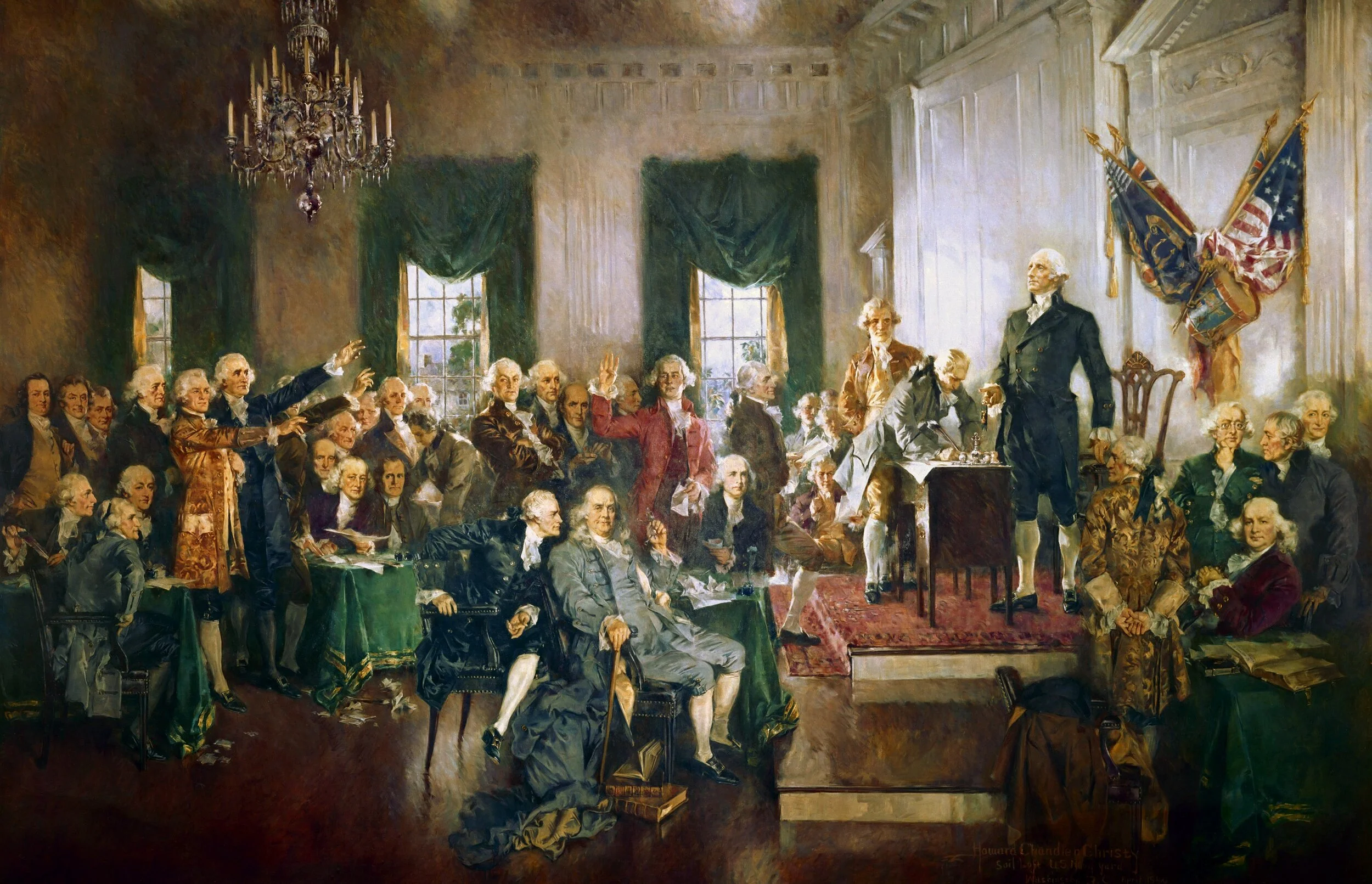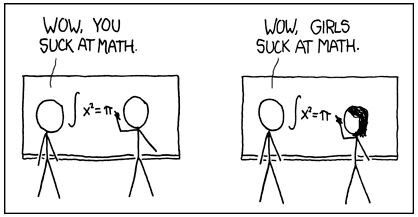You Can't Trust Yourself
/Several of the essays in this section of A Citizen’s Syllabus warn that you can’t trust other people — not even experts. It gets worse. You can’t trust yourself, either. Most people are affected by cognitive biases that twist how they process evidence and how they reach conclusions.
A cognitive bias is any idea or belief that causes a person to filter information inaccurately. It can cause them to jump too quickly to a conclusion, or to disregard accurate and useful information. Biases are caused by prejudice or by laziness or by poor training in epistemology.
Here’s how cognitive biases work. Suppose you think members of a certain social or demographic group are more likely to do something than people in general. Let’s choose a non-controversial example and say left-handed people tend to be fans of the Green Bay Packers. This can lead to the error of over-generalization and cause you to say, “All left-handers like the Packers.” And it could cause you to make the false reverse-logic conclusion, “All Packers fans are left-handed.” Those are both wrong. But there is more. Suppose you encounter ten new people. You ask each of them about their preferred hand and their opinions about football. The results look like this:
Right handed. Not a football fan.
Right handed. Packer fan.
Left handed. Fan of another team.
Right handed. Not a football fan.
Right handed. Fan of another team.
Right handed. Fan of another team.
Left handed. Not a football fan.
Left handed. Packers fan.
Right handed. Fan of another team.
Right handed. Not a football fan.
This new information should convince you that your previous hasty generalization was wrong. You’ve met left-handers who weren’t Packers fans (3, 7). You’ve met Packers fans who weren’t left handed (2). So the evidence you’re gathered proves that “All Packers fans are left handed” is not true, and neither is “All left-handers are Packers fans.”
Sadly, many people presented with this information would walk away more convinced than before that they were correct. Their mind would grasp at number 8 only and forget the rest. In a world where information flows as fast as it does in modern America, the ability to sort and sift facts is vital. No one can possibly remember everything, or even hold every relevant fact in mind while making a complex decision. But the habit of noticing only evidence that supports your opinion and ignoring evidence that refutes it is a serious defect. It is called “confirmation bias” and is one of the more common types of bias.
Here’s a second example. The man in the xkcd comic (known to xkcd fans as “Cueball”) encounters a single woman who fumbles the math problem, and concludes that “All girls suck at math.” When Cueball sees exactly as much evidence about men’s incapacity, he concludes only that one guy is bad at math. This is hasty generalization. It could possibly be true that girls suck at math. But one case doesn’t prove it.
Source: https://xkcd.com/385/
Another very serious bias is “anchoring” — the tendency to think that the first information you receive is more important than it is. If your favorite sports team jumps out to an early lead, you think, “We’re winning.” But most of the game remains to be played, and early leads don’t correlate closely with winning the game.. If the cost of an item you want is really expensive at the first store or online site you check, you might immediately get discouraged and stop looking. If you are looking to move and the first place you look at in a neighborhood is in bad shape, you might dismiss the neighborhood altogether.
Consider the question, “Who is the fastest singer in the world?” A young person might be apt to say Eminem. Or perhaps Jack White on ”Lazaretto”. They haven’t really studied the question, but they heard Eminem’s ”Godzilla,” in which he sings 225 words in 30 seconds, is in the Guinness Book of World Records as the fastest rap song.
An older person might remember ”Life is a Rock” by Reunion or Manfred Mann’s cover of Bruce Springsteen’s ”Blinded by the Light.” Those songs are fast, too. And so is Weird Al Yankovic’s “Hardware Store.”
Both the old and young people are making their assertions based on incomplete evidence. The young people haven’t even heard of Reunion and hardly anything previous to 2000. The older people haven’t kept up with newer pop music since the ‘80s. None of them have conducted a thorough study of who sings fastest in the world.
Here’s an amateur singer claiming he sings a thousand words in two minutes. His video appears to be faked and sped up. The comments under the YouTube video show that most viewers believe this singer is faster than Eminem. That’s another bias: The “availability heuristic.” This one causes people to rely too heavily on the information that is easy (available) and not to bother obtaining real proof.
It is easy to compare 1000 to 290, but hard to do the math needed to compare Eminem with the amateur. A thousand words in two minutes equals 500 words per minute. But 290 words in 30 seconds equals 580 words per minute. So Eminem is faster . . . if 290 words is an accurate measure of Eminem’s speed. Some sources say that’s how fast he sings on “Godzilla,” but the Guinness site says 225 words per minute. That would be 500 words per minute, or very close to the same speed as the amateur, which, again, appears to be faked. But we’re not sure Eminem didn’t speed up his recording, too.
There is more. Consider “in-group bias,” which causes Americans to assume that the fastest American singer will be the fastest in the world. They don’t even consider the possibility that the fastest singer is French. Or Hindi. Or any other language or culture.
Another common cognitive bias is “the framing effect.” The way information is presented influences how likely people are to believe it. A fact is a fact and should always be viewed as meaning what it means. But people are quite likely to boost or diminish the significance of information based on circumstances. A basketball player scores eight points during a game. Blah. But if those points come in the final moments of a close game, fans will imagine that the player dominated the whole game.
Advertising relies on framing extensively. There really is nothing about soap or toothpaste or dishwashing liquid or antiperspirant to get excited about. Advertising makes them exciting by adding exotic scenery, beautiful, successful people and enthusiastic shoppers.
Advertising would not work if consumers weren’t vulnerable to the framing effect. The product is just the product: a tube of minty-tasting white stuff. But with a bit of bright music, an enthusiastic announcer, and some big toothy smiles, consumers will go out and buy that minty-tasting white stuff.
Politicians use framing, too. If a politician running for mayor wants to criticize the incumbent, he or she will make their announcement standing out in the street — preferably on a dingy corner with trash blowing down the street and broken sidewalks and graffiti. They know that the scenery will help to convince people even more than their words will.
Cognitive biases distort how almost all citizens think, including top officials and experts. Some people are affected more than others. Nobody is subject to every form of bias. But nobody is completely free of biases, either. Here are links to articles and lists that suggest 12 very common ones and up to 118 biases in total.
12 Common Cognitive Biases That Affect How We Make Everyday Decisions
20 Cognitive Biases That Affect Your Decisions
24 Cognitive Biases Stuffing Up Your Thinking
50 Cognitive Biases of the Modern World
The Cognitive Bias Codex (with 118 biases)
The number doesn’t matter. Many of the items on the longer lists are just distinctions and variations of the items on the shorter lists. The fact that two writers use different words to describe something, or that one insists that a bias is actually two distinct biases doesn’t matter. It is worthwhile to read about these biases, so you’ll know what they are like.
You needn’t try to remember them. But you should scrutinize your own thoughts as carefully as you scrutinize information from outside sources. You can’t be content to say, “This is what I think.” You need to ask, “Why do I think this? What is my evidence? How sure am I that my evidence is accurate, and that I have enough of it?”
Think:
Can you recognize biased thinking in your own thoughts? Or in people around you?
What can you do to fight against bias?












